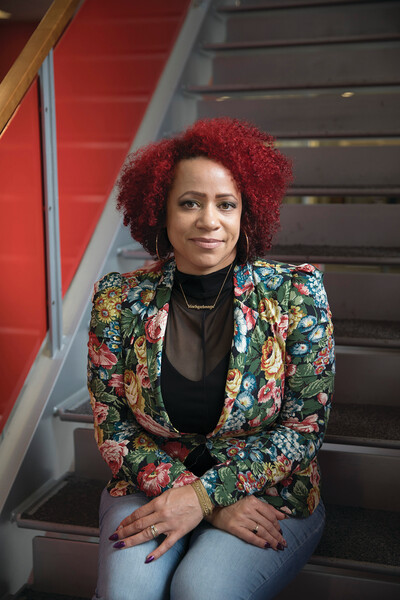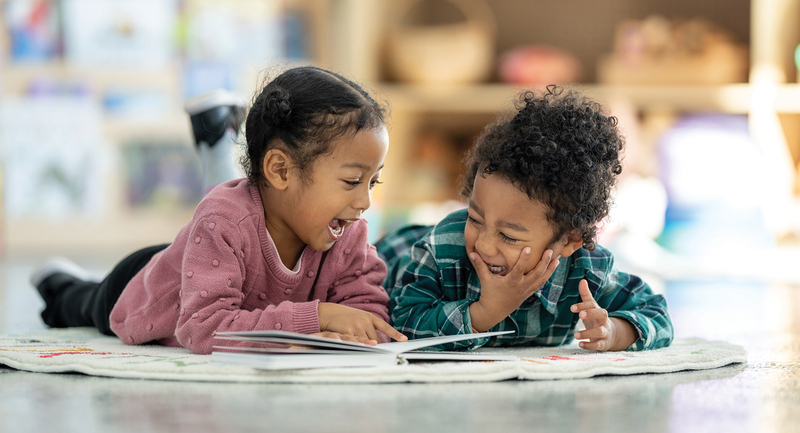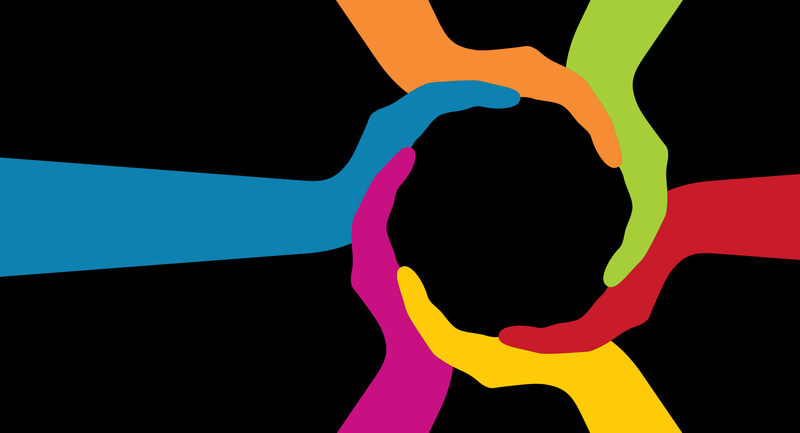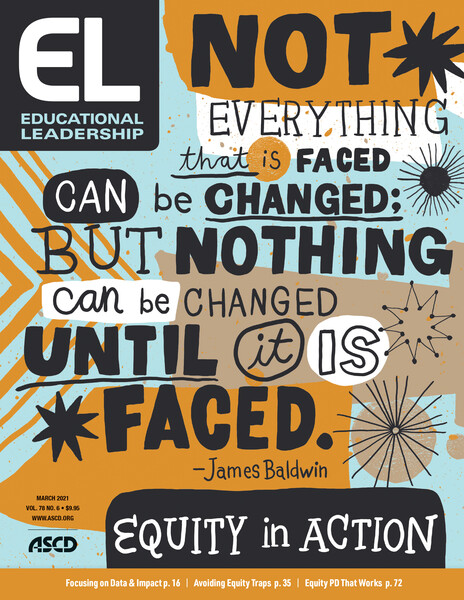The following interview is with Nikole Hannah-Jones, Pulitzer Prize-winning investigative reporter who covers civil rights and racial injustice for The New York Times Magazine. She was co-creator of the 1619 Project, which commemorates the 400th anniversary of the beginning of slavery in the United States.
What is the 1619 Project?
What is the 1619 Project?
The 1619 Project is a multimedia project I co-created. It's an ongoing project published by The New York Times and includes a magazine, a podcast, a special section of the newspaper, and online elements that commemorate the 400th year of African slavery into Virginia. Through a series of essays, poetry, short fiction, and photography, it makes the argument that slavery was foundational to the U.S. and to the country we would become, and that very little about modern American life has been left untouched by that legacy.
I'm a journalist and conceived of the project as a work of journalism. It was only later that we started discussing the curriculum piece of this, and then the Pulitzer Center, which has partnered with the Times for other journalism projects and turns lots of different journalism into curriculum for schools, expressed interest in turning it into curriculum.
How is it being used in schools?
Educators have been remarkable in how they use it. Before COVID-19 shut down real life, I was traveling all across the country visiting different high schools and saw it being used in a variety of ways. Of course, social studies classes were using it. But also English teachers were using it to teach rhetoric and argument, and music teachers were teaching the music essay and podcast. A teacher in North Carolina who taught a food class used the essay on sugar in class.
The work has also inspired students to create their own original poetry and fiction. I visited two schools in New York that had an all-day assembly built around the 1619 Project, and students came up with original short plays, wrote responses to my democracy essay, and did dance performances. Some teachers have had students study their own communities to see how slavery and anti-Blackness has shaped their communities.
It's been really unexpected. I thought it was a cool idea to do the curriculum, but I had no idea how it was going to be embraced. It's really been one of the most fulfilling parts of the project.
The Trump Administration directly condemned your work, and Newt Gingrich called it 'propaganda.' What was their argument, and how have you responded?
There's been very sharp criticism from the Right, in which they disagree with the 1619 Project and its interpretation of America. Many of us were taught a very nationalistic version of history that downplays the darker side, the hypocrisy. For example, a Southern Poverty Law Center study showed that less than 15 percent of American high school students know that the Civil War was fought over slavery. So, we're not taught this history very well, and that's not accidental. There's been this really concerted effort to attack the project because they say that it's unpatriotic. It's history from the bottom, it's history from people who've been marginalized, and it doesn't center whiteness, and that's been very uncomfortable for people, especially as the project has become more successful. When there was a realization that schools were teaching it, there was this organized effort to push back against it and to discredit it—including, of course, from the then-President of the United States.
I always had very up and down feelings about this criticism. On the one hand, it's exhausting and disappointing to have your work attacked pretty constantly for more than a year—and this was work that was very personal to me. It is a disconcerting feeling to have the President of the United States rallying and signing an executive order against your journalism.
But, on the other hand, I can't think of a better endorsement for the work we did and why it was necessary. That it would be that unsettling, that it would become part of a presidential campaign … I would be lying if I didn't say I felt a point of pride for that. Because had that project not been successful, had there not been fear around the arguments we were making, then none of this would've happened.
You've written before about your family's personal struggles in deciding what school to send your child to. How have you talked with your daughter about the inequities in our school systems?
I try to raise my daughter to understand that most people don't live like her. There's been no greater lesson like that than within the school she attends, a high-poverty, segregated public school in New York City. Education is not just about what advantages you can get for yourself, but about what you can do for your community. From a young age, I've tried to instill in my child that we are connected to each other and have a strong belief in the common good. Because of the school my daughter is in, we've had lots of conversations about things like this. She sees kids who don't have a Christmas, who don't have technology. These issues are not abstract to her. I think it's important not to try to protect kids from those conversations.
How can educators create change from within to be more equitable in their schools?
This is going to sound trite, but as someone who has covered schools for years, attended high-poverty, segregated schools and who now has a child in a high-poverty, segregated school, I think the thing that teachers have the most control over is whether they actually believe that the kids in their classroom are worthy of a quality education and can achieve the same as any other kid. We know that educators will say that publicly, but it's not always true.
I've seen far too often where there's not a belief that we have to offer the same rigor and quality instruction to poor Black kids that we offer to other kids. We had a teacher at my daughter's school who would not send home books or workbooks because that teacher didn't think that these poor Black kids would bring them back. Teachers can't control all the larger systemic things, but the systemic things occur because of individual actions. Research shows a significant percentage of white teachers don't believe Black kids are as capable, and if you don't believe that, you're going to teach that way.
The other thing is: Are our teachers supporting tracking? Are teachers advocating for the sorting of kids because it makes their lives easier not to have to deal with kids who are at various learning levels? Are teachers supporting efforts in their districts to make resources more equitable, or are they doing what is most often the case—when they get seniority, they go to the schools that are the easiest to teach in and allow the schools that need the greatest instruction to have the least-experienced educators.
You've said that you often write about 'the worst side of America.' Where do you see progress?
When I first started writing about school segregation six years ago, there was almost no reporting about that issue. That's not the case anymore. It is now part of the conversation.
I think that matters. Clearly, you're not going to try to resolve an issue that you won't name or acknowledge exists. I do think there are people now who are refusing to ignore it. There aren't enough of us, and I don't think the changes are substantial enough, but it's certainly better than it was five years ago.
Editors' note: This interview has been edited for space.







